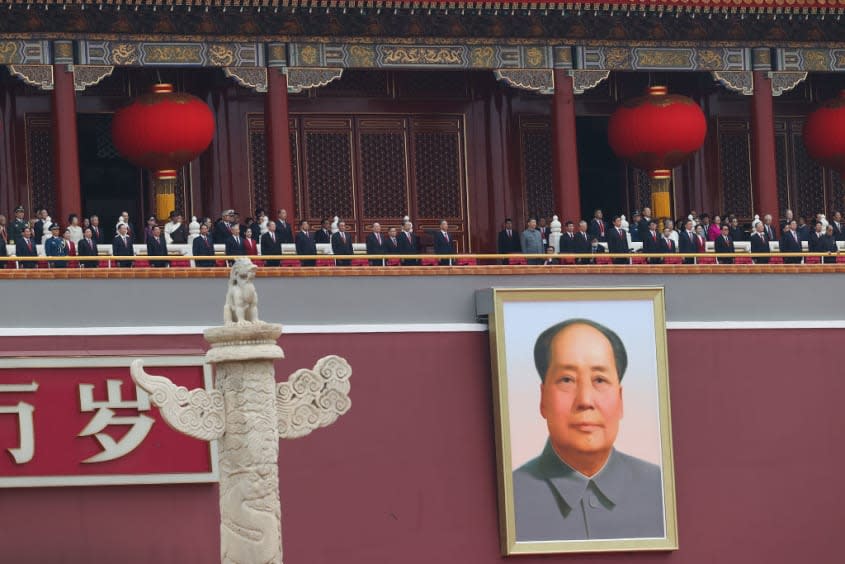Xi may be moving China to economic system 'that doesn't exist anywhere in the world'

For a long time, analysts chalked Chinese President Xi Jinping's homages to Mao Zedong to "political stagecraft," but a Wall Street Journal examination of Xi's recent writings and speeches suggests they should be taking him much more seriously. It now appears Xi is "forcefully" trying to get China back to Mao's socialist vision, the Journal writes.
It's a strategy that involves much more aggressive state interference in what could someday be the world's largest economy. That marks a change from the past forty years, during which China's leaders have allowed more room for market forces to operate, spurring the growth of the private sector. Xi, though, has increasingly shown himself to be more ideologically-driven than his predecessors, and his rhetoric over the last few years provides a look at his determination to target larger companies and redistribute wealth among the population.
The Journal notes that Xi isn't trying to completely eradicate market forces (for instance, he reportedly wants to allow small-to-mid-size private business to continue to develop), but he wants the Chinese Communist Party to "steer flows of money" and curb the ability of entrepreneurs and investors to make profits to an even greater extent than it already does.
"Xi does think he's moving to a new kind of system that doesn't exist anywhere in the world," Barry Naughton, a China economy expert at the University of California, San Diego, told the Journal. "I call it a government-steered economy." Read more at The Wall Street Journal.
You may also like
7 painfully funny cartoons about America's endless vaccine fights

 Yahoo Movies
Yahoo Movies 
